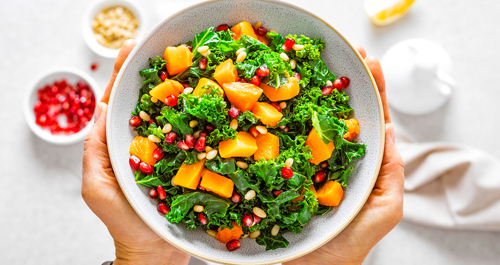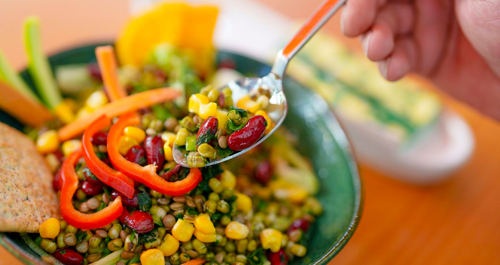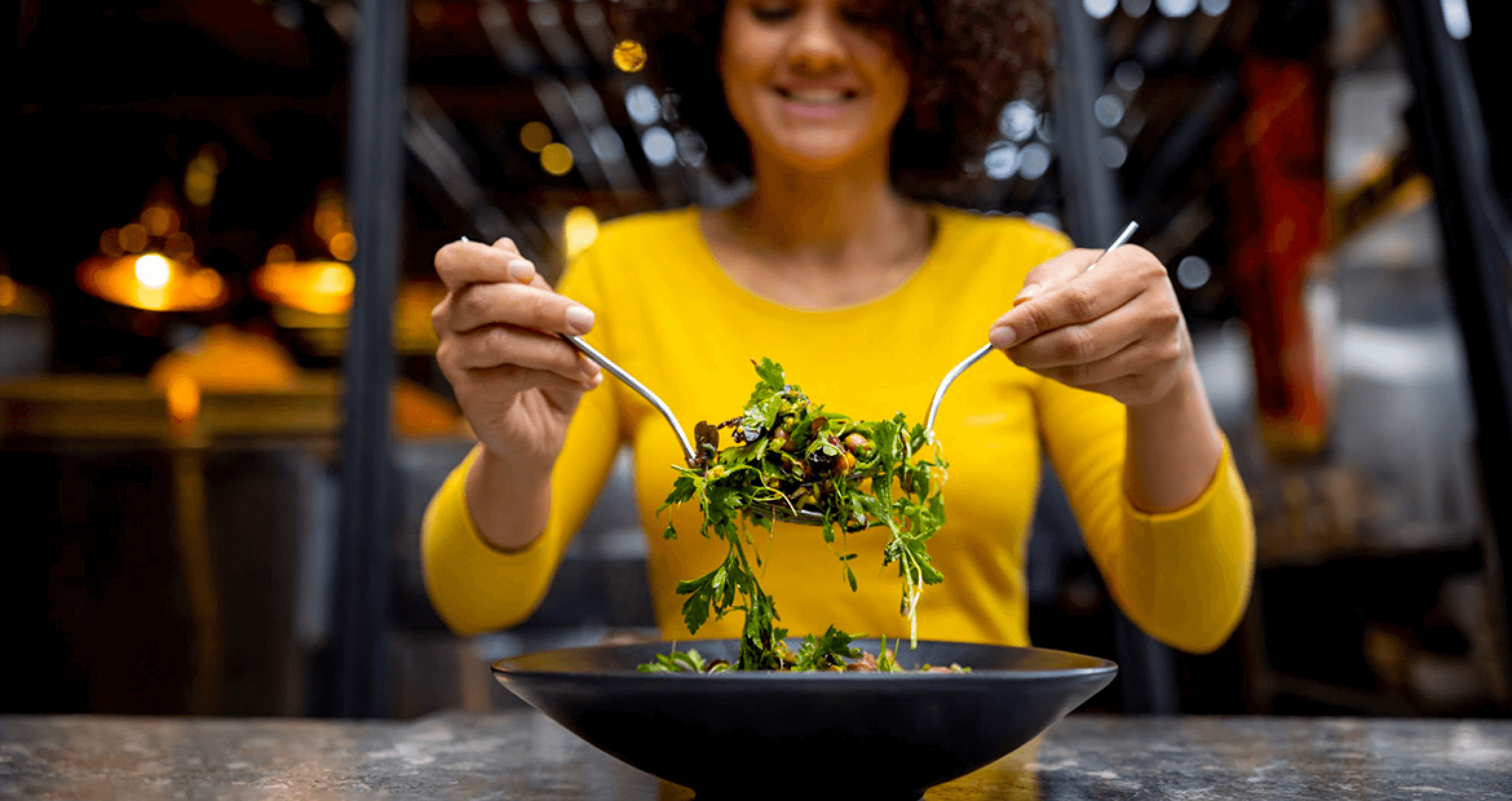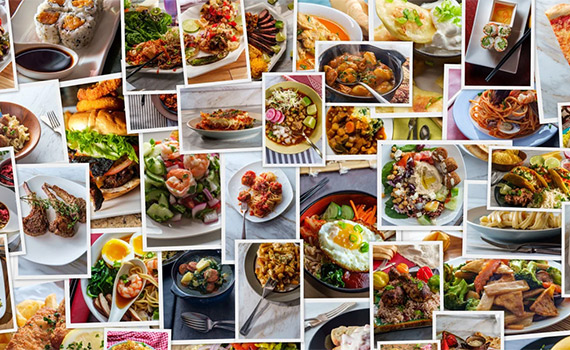Veganism is gaining increasing attention as a pathway to a healthier lifestyle and a commitment to environmental awareness. This plant-based approach to eating extends beyond dietary habits, encompassing ethical and environmental responsibilities.
What Does It Mean to Follow a Vegan Diet?

A vegan diet refers to an entirely plant-based eating pattern that eliminates all foods of animal origin. To address the question, "What does vegan eating entail?" it can be described as refraining from not only consuming meat and dairy products but also avoiding eggs, honey, and any items containing animal-derived ingredients.
Answering "How does one adopt a vegan diet?" involves crafting a wholesome diet rich in natural ingredients such as vegetables, fruits, legumes, cereals, nuts, seeds, and plant oils. This way of eating promotes a healthy and sustainable lifestyle while striving to reduce environmental impact.
Benefits of Following a Vegan Diet

The benefits of a vegan diet extend beyond improving physical health; they also promote a conscientious approach toward nature and animal rights. Vegan eating can be effective in reducing the risk of chronic conditions such as heart disease, high blood pressure, and type 2 diabetes. A plant-based diet, with its low saturated fat content, supports cardiovascular health and helps maintain healthy cholesterol levels.
Another significant advantage of vegan nutrition is its positive impact on the environment. The livestock industry is a major contributor to greenhouse gas emissions, and adopting a vegan diet plays a vital role in reducing one’s carbon footprint and protecting the planet.
Veganism is not just a dietary choice but a lifestyle rooted in ethical values. If you plan to design your eating habits around veganism, consulting a healthcare professional beforehand is essential. It’s important to remember that dietary changes should not be made solely at one’s discretion but under the guidance of a qualified doctor.
How to Follow a Vegan Diet?

A vegan diet eliminates all animal-derived products and relies entirely on plant-based sources for nutrition. Transitioning to veganism can be done healthily by choosing the right foods and creating a balanced meal plan. A vegan diet typically includes vegetables, fruits, legumes, grains, nuts, seeds, and plant-based oils.
The answer to "How to follow a vegan diet?" begins with understanding the right foods to incorporate. Protein needs can be met through plant-based sources like legumes, tofu, tempeh, quinoa, and lentils. Calcium can be obtained from almonds, sesame seeds, broccoli, and fortified plant milk. For iron, foods such as spinach, quinoa, and kidney beans are excellent choices.
It is also important to consider potential nutrient gaps in a vegan diet. Supplements for B12, vitamin D, and omega-3 fatty acids are often recommended to ensure complete nutritional support.
Vegan Diet Plan

A well-structured vegan diet plan is designed to ensure nutritional adequacy by incorporating a diverse range of food groups. It aims to provide all essential vitamins, minerals, protein, and other key nutrients necessary to support optimal health and well-being. Tailored to meet the specific needs of each individual, such a plan focuses on achieving a balanced and sustainable approach to nutrition.
The foundation of a vegan meal plan includes vegetables and fruits, complemented by legumes, grains, nuts, and seeds. Vegan nutrition emphasizes natural, unprocessed foods. A thoughtfully structured vegan diet plan can significantly boost health, enhance energy levels, and improve overall quality of life.
Types of Vegan Diets

Vegan nutrition is not a one-size-fits-all approach; it encompasses many types that can be tailored to different lifestyles and health needs. These variations allow plant-based eating habits to diversify, offering options suited to each individual's lifestyle, health goals, and ethical values. The primary types of vegan diets can be categorized as follows:
-
Whole Food Veganism: This approach avoids processed foods, focusing on the consumption of natural and organic foods. In this type, fresh vegetables, fruits, legumes, whole grains, and seeds are the main sources of nutrition.
-
Plant-Based Diet: Similar to veganism, a plant-based diet involves eating primarily plant-based foods. However, some individuals may occasionally consume processed plant-based foods as part of their diet.
-
Traditional Veganism: Traditional veganism replaces all animal-derived products with plant-based alternatives. In this diet, meat, dairy, cheese, eggs, and honey are completely excluded. Traditional vegans focus on a diet that supports healthy eating and advocates for animal rights.
Types of vegan diets can vary depending on personal preferences and health needs. The type chosen should align with an individual’s lifestyle, environmental impact considerations, and ethical values.
Key Considerations for Following a Vegan Diet

When transitioning to a vegan diet, there are several important factors to keep in mind. First and foremost, it's essential to ensure a balanced intake of nutrients. Protein, vitamins, and minerals can be obtained from plant-based sources, but certain nutrients, such as vitamin B12, vitamin D, and iron, may require supplementation. Additionally, it's crucial to maintain variety in food choices to ensure that all necessary nutrients are included in each meal.
The Difference Between Vegan and Vegetarian Diets

Both vegan and vegetarian diets limit the consumption of animal-derived products, yet they differ significantly in their scope and principles. A vegan diet excludes all animal products, including meat, dairy, cheese, eggs, and honey. Vegans do not consume any food derived from animals, and this dietary choice is often driven by ethical concerns and environmental considerations.
In contrast, a vegetarian diet prohibits the consumption of animal flesh but permits the inclusion of other animal-derived products such as dairy and eggs. To summarize, while a vegetarian diet allows for some animal-based foods, veganism is strictly plant-based, reflecting a more comprehensive commitment to avoiding all forms of animal exploitation.
Vegan Recipes

Appetizer: Kisir (Turkish Bulgur Salad)
Ingredients: 1 cup fine bulgur, 1/2 cup olive oil, Juice of 1 lemon, 1 tsp salt, chopped tomatoes, chopped cucumber, chopped green onions(scallion), pomegranate molasses
Instructions: Soak the bulgur with hot water and let it absorb and swell. Add olive oil, lemon juice, salt, and pomegranate molasses. Finally, mix in the chopped vegetables and serve.
Main Course: Chickpea Vegetable Kofta
Ingredients: 2 cups cooked chickpeas, 1 onion, 1/2 cup fine bulgur, 1/2 cup flour, salt, spices (cumin, red pepper flakes), 2 tbsp olive oil
Instructions: Mash the chickpeas. Chop the onion and sauté it in olive oil. Add the remaining ingredients and mix well. Shape the mixture into koftes and fry them until golden brown. Serve hot.
Dessert: Avocado Chocolate Mousse
Ingredients: 1 ripe avocado, 2 tbsp cocoa powder, 1 tbsp maple syrup or date syrup, 1 tsp vanilla extract
Instructions: Blend all the ingredients in a food processor until smooth. Refrigerate for 1 hour to chill. Serve cold.
A Breakfast Plate: Vegan Breakfast
Ingredients: Whole wheat bread, 1 avocado, tomatoes, cucumber, olives, hazelnuts, vegan cheese
Instructions: Toast the slices of bread and spread the mashed avocado on top. Add chopped vegetables, olives, and vegan cheese to prepare the breakfast.
Each individual can adopt a diet that aligns with their lifestyle, finding motivation to maintain it in any environment. Calista Luxury Resort caters to diverse dietary preferences, offering an extensive selection of delicious meals expertly crafted by skilled chefs. The resort accommodates a variety of nutritional needs, including vegan, vegetarian, and other specialized diets, ensuring every guest enjoys a satisfying and health-conscious dining experience.




















